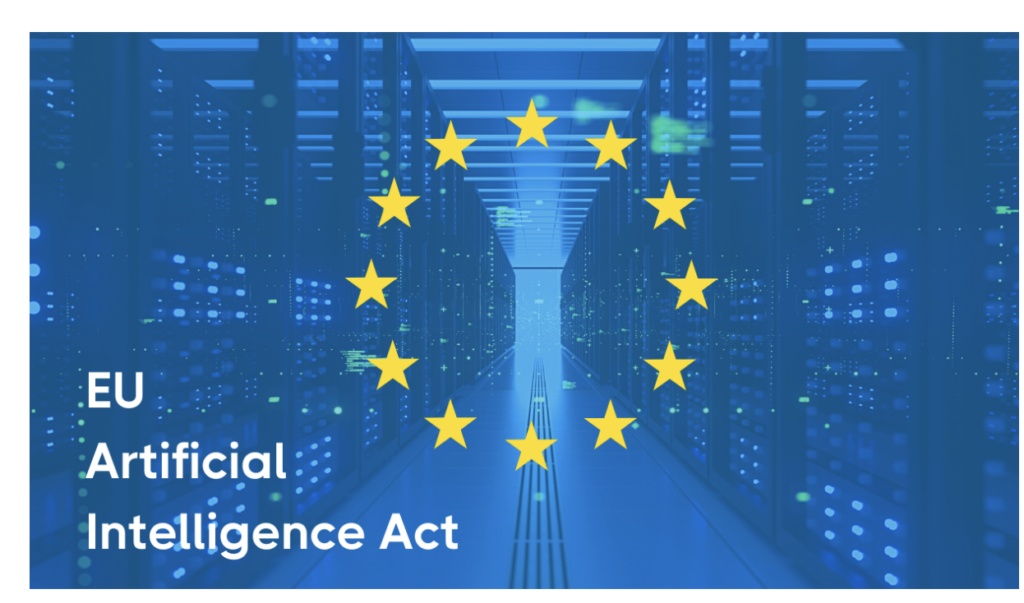
Artificial Intelligence (AI) is changing the way we live and work, from smart assistants to automated hiring processes. But with these advances come challenges, especially when it comes to making sure AI is used fairly and safely. That’s where the EU AI Act comes in. This new regulation, proposed by the European Union, aims to create rules for how AI should be used, particularly in ways that affect people’s lives.
In this blog, we’ll break down what the EU AI Act is, why it matters, and how it could impact businesses, especially those using AI for hiring and other HR functions.
What is the EU AI Act?
The EU AI Act is a set of rules proposed by the European Commission in April 2021. It’s designed to ensure that AI is used responsibly across Europe. The Act sorts AI systems into four categories based on the level of risk they pose, see image:
- Unacceptable Risk: AI systems that are too dangerous to be allowed. For example, systems that manipulate people’s behavior in harmful ways or exploit vulnerable groups are banned.
- High Risk: These are AI systems that can have a significant impact on people’s lives, like those used in healthcare, hiring, or law enforcement. These systems are allowed, but they must meet strict requirements, including regular testing for fairness and accuracy.
- Limited Risk: AI systems that pose less risk but still need some transparency. For example, chatbots that interact with customers must inform users they’re talking to an AI.
- Minimal Risk: Most AI systems fall into this category and are not heavily regulated, allowing for more innovation.
Key rules of the EU AI Act
- Risk Management: If your AI system is considered high risk, you need to regularly test and manage its potential risks. This includes making sure the AI doesn’t discriminate against certain groups of people.
- Record-Keeping: Companies must keep detailed records of how their AI systems work, including how they’re trained and how decisions are made. This helps ensure that the AI can be audited for fairness and accuracy.
- Transparency: High-risk AI systems must be designed so that humans can oversee and, if necessary, override their decisions. Also, users should know when they’re interacting with an AI system.
- Penalties for Non-Compliance: Companies that don’t follow these rules can face significant fines, up to 6% of their global revenue.
Why is this important for HR?
The EU AI Act is particularly relevant for HR leaders because AI is increasingly being used in hiring, employee monitoring, and performance evaluation. Here’s how the Act impacts these areas:
- Recruitment: AI tools used for screening resumes or assessing candidates must be fair and transparent. If you use AI in hiring, you need to ensure it’s free from bias and inform candidates when AI is being used.
- Employee Monitoring: If you use AI to monitor employees, the Act requires you to be transparent about what’s being monitored and how the data is used, while also protecting employee privacy.
- Performance Evaluation: AI systems that evaluate employee performance need to be carefully managed to avoid unfair treatment. Human oversight is required to make sure that AI recommendations are fair.
Why AI is Important for recruitment
Go Ahead Hire understands the transformative power of AI in recruitment. AI enables companies to streamline the hiring process by quickly scanning through large volumes of resumes, identifying top candidates, and matching them to suitable roles based on specific skills and experience. This not only speeds up the recruitment process but also allows HR teams to focus on more strategic activities.
Additionally, Go Ahead Hire recognizes that AI plays a crucial role in reducing human biases in hiring decisions. By applying objective criteria to evaluate candidates, AI contributes to building a more diverse and inclusive workforce. Through the automation of repetitive tasks, AI frees up recruiters to focus on fostering relationships with candidates and making well-informed hiring decisions. Overall, Go Ahead Hire leverages AI to enhance accuracy, efficiency, and fairness in recruitment.
What this means for businesses
The EU AI Act will have a significant impact on businesses, especially those that use AI in critical areas like recruitment and employee management. Here’s what you should consider:
- Higher Compliance Costs: Companies will need to invest in tools and processes to ensure their AI systems meet the new regulations. This might include conducting regular audits, improving transparency, and keeping detailed records.
- Global Influence: The EU AI Act is likely to influence AI regulations in other parts of the world. If your business operates globally, aligning with these rules might help you stay ahead of future regulations elsewhere.
- Ethical AI Development: The Act encourages businesses to prioritize ethical AI practices, which could enhance your reputation as a responsible company and help attract top talent.
Preparing for the future
As the EU AI Act moves closer to becoming law, it’s important for businesses to start preparing now. Here are some steps to take:
- Assess Your AI Systems: Determine if any of your AI tools are considered high risk and start implementing the necessary safeguards.
- Invest in Compliance: Build the infrastructure needed to comply with the Act, such as risk management frameworks and transparency tools.
- Stay Informed: Keep an eye on updates to the EU AI Act and engage with industry groups to stay ahead of the changes.
- Promote Ethical AI: Make ethical AI a priority in your company to build trust with employees, customers, and regulators.
Conclusion
The EU AI Act represents a significant shift in how AI is regulated, impacting various business operations, particularly in HR. Understanding and complying with these regulations is essential for organizations that utilize AI in recruitment, employee monitoring, and performance evaluation.
At Go Ahead Hire, our team of experts is well-versed in the complexities of the EU AI Act. We can help you navigate these new regulations, ensuring your AI practices are ethical and compliant. If you have questions or need guidance on how to adapt to these changes, don’t hesitate to reach out to us. We’re here to support you in leveraging AI responsibly and effectively.

















